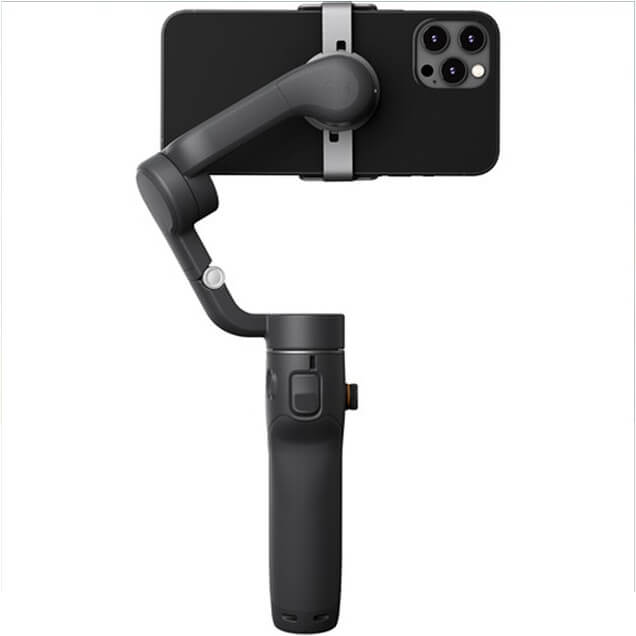Chinese smartphone manufacturer Honor has sent shockwaves through the tech industry with the reveal of its groundbreaking “Robot Phone” concept, featuring an unprecedented fold-out robotic camera arm with AI-powered gimbal technology. This futuristic device, part of Honor’s ambitious $10 billion Alpha Plan initiative, promises to redefine smartphone photography and videography when it debuts at Mobile World Congress 2026.

Table of Contents
Revolutionary Design Merges Robotics with Mobile Technology
The Honor Robot Phone represents a radical departure from conventional smartphone design, featuring a 3-axis gimbal-mounted camera system that extends from the device’s rear panel through a sophisticated robotic arm mechanism. Unlike traditional smartphones, this concept device transforms the camera into an autonomous, AI-driven companion capable of independent movement and intelligent scene analysis.
The device maintains a familiar smartphone form factor but with a notably thicker profile to accommodate the complex mechanical components. The rear panel features a distinctive Alpha symbol replacing the traditional Honor logo, signifying the device’s role in the company’s broader vision for AI-powered devices. When activated, the camera arm emerges with what Honor describes as a “playful giggle,” showcasing the device’s anthropomorphic personality traits.
Read More: Confirmed – Honor X10 series will be launched in China on May 20
Advanced AI Integration and Smart Features
Honor positions the Robot Phone as more than a mere photography tool, describing it as an “emotional companion” that “senses, adapts, and evolves autonomously like a robot”. The device incorporates advanced AI capabilities that enable it to:
- Automatically compose photographs using intelligent scene recognition
- Track subjects dynamically across multiple axes of movement
- Provide contextual assistance including outfit analysis and environmental awareness
- Entertain children through interactive movements and sounds
- Capture astronomical photography with precision tracking capabilities
The integrated AI system represents a significant evolution from previous flip-camera designs like the 2019 Asus Zenfone 6, adding autonomous decision-making capabilities and multi-modal intelligence to the mechanical camera system.

| Specification Category | Technical Details & Features |
|---|---|
| Device Name | Honor Robot Phone Concept |
| Product Category | AI-Powered Concept Smartphone |
| Key Innovation | Fold-Out Robotic Camera Arm |
| Camera Technology | 3-Axis Gimbal-Mounted Camera System |
| AI Features | Autonomous Scene Recognition & Subject Tracking |
| Stabilization | Professional-Grade Gimbal Stabilization |
| Movement Capability | Multi-Axis Robotic Arm Extension |
| Smart Functions | Contextual Assistance, Outfit Analysis, Entertainment |
| Development Program | Honor Alpha Plan Initiative |
| Investment Amount | $10 Billion Over 5 Years |
| Launch Timeline | Mobile World Congress 2026 |
| Debut Event | MWC 2026 Barcelona, Spain |
| Market Target | Content Creators, Photography Enthusiasts |
| Unique Selling Points | Emotional Companion, Autonomous Intelligence |
| Technology Integration | Robotics + AI + Mobile Technology |
| Industry Position | Pioneer in AI-Integrated Mobile Robotics |
Technical Specifications and Market Context
While Honor has not released complete technical specifications, the concept showcases several innovative features that position it at the forefront of mobile imaging technology. The gimbal-stabilized camera system offers professional-grade stabilization comparable to dedicated camera gimbals like the DJI Osmo Pocket series, but integrated directly into a smartphone form factor.
The smartphone gimbal market is experiencing rapid growth, with projections indicating expansion from $524 million in 2024 to $882 million by 2035, representing a compound annual growth rate of 4.9%. This growth is driven by the increasing demand for high-quality video content creation and the proliferation of social media platforms requiring professional-grade footage.

Honor’s Alpha Plan: A $10 Billion AI Vision
The Robot Phone concept emerges as a cornerstone of Honor’s Alpha Plan, a comprehensive three-phase strategy announced at Mobile World Congress 2025. This ambitious initiative represents Honor’s transformation from a traditional smartphone manufacturer into a global AI device ecosystem company, with a committed investment of $10 billion over five years.

The Alpha Plan encompasses three distinct phases:
- Agentic AI Era: Development of intelligent phones with human-centric AI capabilities
- Physical AI Era: Creation of open AI ecosystems across industry boundaries
- AGI Era: Advancement of human potential through artificial general intelligence integration
James Li, CEO of Honor, emphasized the revolutionary nature of this approach: “The AI revolution will reshape the paradigm of the device industry—completely transforming our productivity, our society, and even our culture more than ever before”.
Read More: Honor Band 5 announced! Here is the specification and price
Market Impact and Industry Implications
The Robot Phone concept addresses several key market trends driving innovation in mobile technology. The content creation economy, valued at over $150 billion, demands increasingly sophisticated tools for producing high-quality, stabilized video content. Honor’s robotic camera system directly responds to this demand by providing professional-grade stabilization and autonomous tracking capabilities previously available only through separate gimbal accessories.
Industry analysts note that the concept represents a significant technological leap beyond conventional smartphone cameras. The integration of mechanical robotics with AI-driven intelligence creates new possibilities for mobile photography and videography, potentially establishing a new product category within the smartphone market.
The device’s ability to function as both a traditional smartphone camera and an autonomous robotic imaging system could appeal to professional content creators, social media influencers, and photography enthusiasts seeking versatile, portable solutions for high-quality content production.
| Feature Category | Honor Robot Phone | Traditional Smartphones | Dedicated Gimbals |
|---|---|---|---|
| Camera Innovation | Fold-out robotic camera arm with 3-axis gimbal | Fixed camera modules with digital stabilization | External 3-axis mechanical stabilization |
| AI Capabilities | Autonomous scene recognition and subject tracking | Basic AI photo enhancement and scene detection | Manual operation with limited automation |
| Physical Design | Robotic arm mechanism with Alpha branding | Static camera placement in corners or notches | Separate device requiring smartphone attachment |
| Smart Functions | Contextual assistance and entertainment features | Standard camera app with manual controls | Professional video recording capabilities |
| Market Advantage | First smartphone with integrated robotic camera | Incremental camera improvements yearly | Superior stabilization but bulky form factor |
| Technical Specs | Professional-grade stabilization technology | Software-based stabilization with limitations | Advanced motors and precision engineering |
Challenges and Development Timeline

Despite its innovative potential, the Robot Phone concept faces significant engineering and manufacturing challenges. Historical attempts at incorporating moving parts into smartphones, such as pop-up camera modules, have often been discontinued due to durability concerns, increased manufacturing costs, and reduced water resistance.
Honor’s implementation must address several critical technical issues:
- Mechanical reliability of the robotic arm system over extended use
- Dust and debris protection for the retractable camera mechanism
- Battery life impact from motorized components and AI processing
- Manufacturing scalability for mass production
The company plans to provide additional technical details and potentially demonstrate working prototypes at Mobile World Congress 2026 in Barcelona, Spain. This timeline suggests Honor is allowing sufficient development time to address these technical challenges before potential commercialization.
Read More: Honor Phones
Competitive Landscape and Future Outlook
Honor’s Robot Phone concept positions the company as a pioneer in AI-integrated mobile robotics, potentially establishing a competitive advantage in the rapidly evolving smartphone market. While competitors like Samsung, Apple, and Google continue to focus on incremental camera improvements, Honor’s radical approach demonstrates willingness to explore uncharted technological territory.
For more next-gen devices beyond concepts, here are the 2026 phones people are most excited about.
The concept aligns with broader industry trends toward AI integration in consumer devices and the growing importance of mobile content creation tools. As social media platforms increasingly prioritize video content, devices offering superior stabilization and autonomous filming capabilities may gain significant market traction.
The success of Honor’s Robot Phone will likely depend on the company’s ability to balance innovative features with practical usability, ensuring that the robotic camera system provides genuine value beyond novelty appeal. If successfully executed, the concept could inspire similar innovations across the smartphone industry, potentially establishing a new category of AI-powered robotic mobile devices.
Honor’s bold vision for the Robot Phone represents a fascinating glimpse into the future of smartphone technology, where artificial intelligence and mechanical engineering converge to create devices that transcend traditional tool boundaries, evolving into intelligent companions capable of autonomous creativity and assistance.







